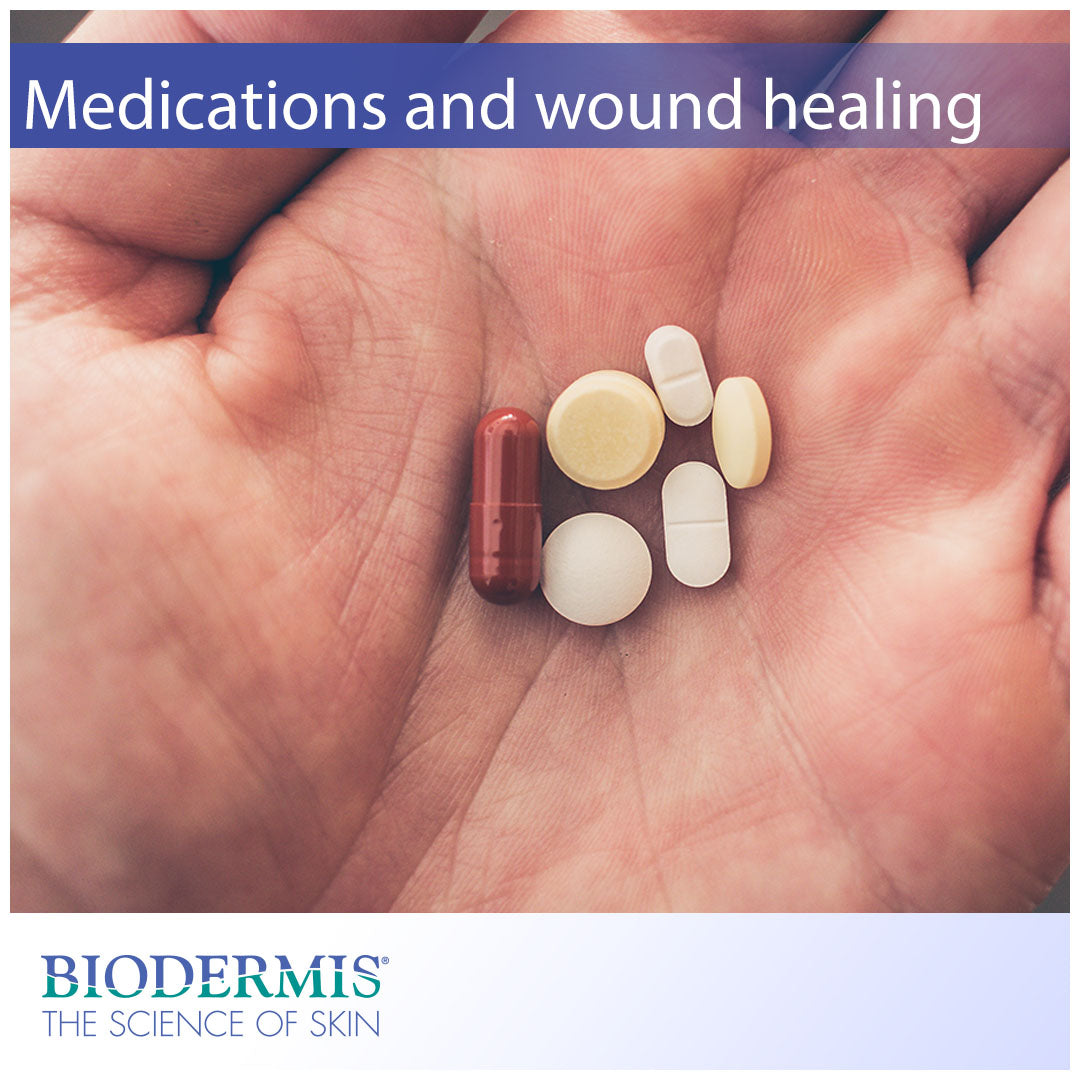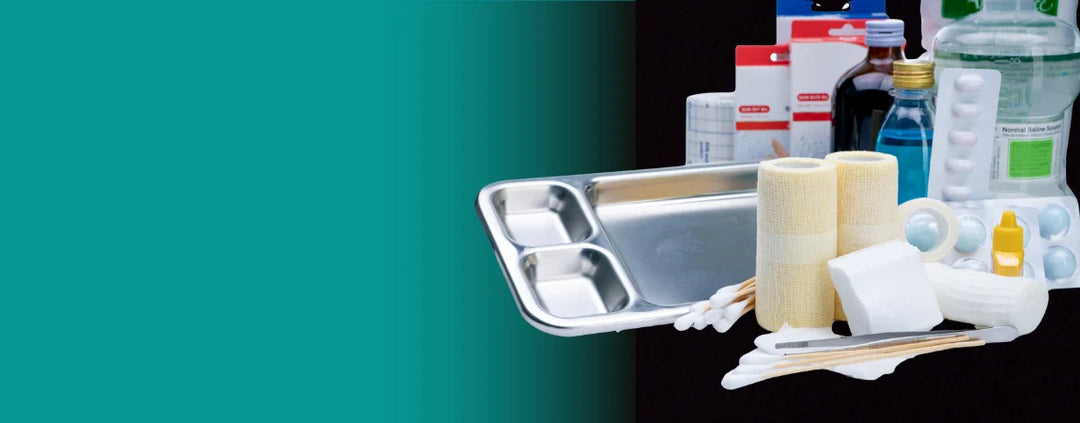People use prescription or over-the-counter (OTC) medications to help treat underlying conditions or temporary illnesses. It’s estimated that more than 131 million people, or 66% of adults, are actively taking prescription drugs. And this doesn’t account for the medications that we can purchase without a prescription, including common pain killers or cold and flu remedies. It’s important to be aware that many medications have side-effects, some of which can interfere with the way our bodies heal themselves. When wounds take longer than normal to heal, then there may be an increased risk for scarring down the road.
Continue reading to learn more about the common medications that suppress wound healing and what you can do to safely and effectively treat your scars.
Continue reading to learn more about the common medications that suppress wound healing and what you can do to safely and effectively treat your scars.
Immunosuppressants
People who need a transplant organ are always prescribed an immunosuppressant to reduce the chance that the body will reject it. Similar to an infection, the body will see a transplant organ as a foreign invader, activating the immune system to attack it. In this case, an immunosuppressant will give the body some time to adapt to the new organ. Immunosuppressants are also commonly prescribed for people who have an autoimmune disease, such as lupus, psoriasis, or rheumatoid arthritis. One function of our immune system is the ability to heal wounds, so by suppressing the immune system, wound healing will also be suppressed.Corticosteroids
Similar to immunosuppressants, corticosteroids can suppress the immune system and slow down the wound healing process. Corticosteroids are produced naturally in the adrenal cortex and play a role in a variety of physiological functions, such as the stress and immune response. Prescription-based corticosteroids are synthetic but they mimic the effects of those naturally produced in the body. Corticosteroids reduce inflammation related to a number of health problems including asthma, skin rashes, and lupus.NSAIDs
Nonsteroidal anti-inflammatory drugs (NSAIDs for short), is the umbrella term used for pain-relieving medications such as aspirin, ibuprofen, and naproxen. NSAIDs work in conjunction with specialized enzymes that produce compounds referred to as prostaglandins. These compounds reduce swelling, pain, and fever. Some NSAIDs known as COX-2 inhibitors can interfere with blood platelet function involved in the wound healing process. When platelet functioning is inhibited, blood clotting can’t occur, resulting in a delayed wound-healing response.Anticoagulants
Anticoagulants are used to lower the chance of dangerous blood clots in people who are at risk for strokes, heart attacks, or deep vein thrombosis. A blood clot that blocks the flow of blood in a blood vessel can affect other portions of the body, which won’t be getting enough oxygen due to the blockage. Blood clots are useful in wound healing because they create a barrier that stymies blood loss. If a person is taking an anticoagulant, the wound-healing response will be diminished due to a lack of clotting.Clinically-proven scar care
If the wound-healing response is delayed due to taking one of these kinds of medications, there may be an increased risk of scarring. While there are several options to treat scars, medical-grade silicone is usually the first-line of defense. Topical silicone is clinically-proven to prevent and reduce the size and discoloration of keloids and hypertrophic scar formations. Abnormal scars are characterized by the buildup of collagen on the surface of the skin. Medical silicone works through the mechanisms of oxygen and hydration to reduce the collagen buildup, allowing the scar bed to blend in with the surrounding tissue. Silicone is often used soon after a wound has fully healed. However, even fully-matured scars can be reduced using topical silicone. Silicone gel can be purchased through your physician or online at biodermis.com.
Biodermis is an innovative market leader with 30 years of expertise in the medical silicone industry. Visit Biodermis.com today to explore a complete range of scar management and post-operative care solutions.
PHYSICIANS AND MEDICAL PROFESSIONALS: REFER OR RESELL?
Biodermis offers custom tailored referral programs designed to simplify and reduce the cost of your patients' post-op care. Additionally, we offer professional pricing if you opt to retail our products. Give us a call at 800.322.3729, and we will be happy to provide additional details on these programs.



